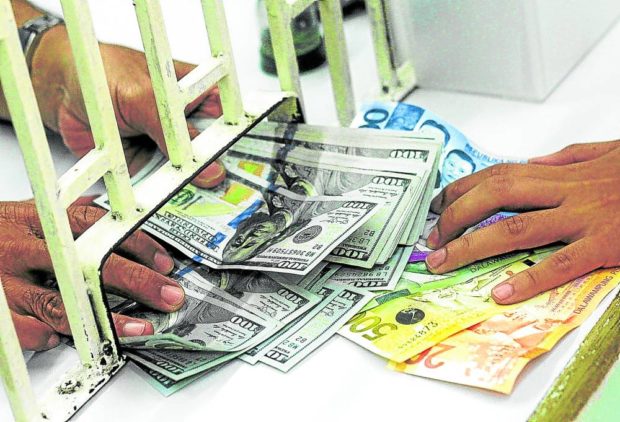MANILA -Personal remittances from overseas Filipino workers (OFWs) rose by 2.8 percent to $3.1 billion in August from $3.02 billion in the same month last year, according to the Bangko Sentral ng Pilipinas (BSP).
The increase in August inflows was the fastest since the 2.9 percent recorded three months earlier last May, when remittances amounted to $2.78 billion.
The central bank attributed the results in August to continued growth of inbound money transfers from both land-based and sea-based overseas workers.
Steady growth
Further, the latest monthly result brought the total inflows for the first eight months of 2023 to $24.01 billion, up by 2.9 percent from $23.34 billion for January-August 2022.
Eight-month growth this year was just slightly slower than 3-percent recorded for the same period of 2022.
Of total remittances received in August, transfers coursed through banks increased by 2.7 percent to $2.8 billion from $2.72 billion.
The steady inflow that should peak in the fourth quarter is expected to help mitigate the “bleak outlook” on the Philippine peso, alongside receipts from business process outsourcing activities.
The United States had the highest share of Philippine-bound cash remittances, followed by Singapore and Saudi Arabia.
For the eight-month tally, inbound cash transfers increased by 2.8 percent to $21.58 billion from $20.99 billion.
The latest readouts are consistent with the BSP’s expectation that full-year cash transfers will grow by 3 percent from $36.1 billion last year, which would bring it to $32.2 billion this year.
BSP defense
According to HSBC, how markets approach the Philippine peso remained unchanged—maintaining a long US dollar bias.
As of this writing, the Philippine peso remains below 57 against the greenback, a position which HSBC said the BSP was likely to continue defending.
“With the Philippines’ trade deficit unlikely to narrow much into year-end, we expect the [peso] to only get a reprieve when services trade surplus and inward remittance pick up amid strong seasonality in October and December,” HSBC added. INQ
